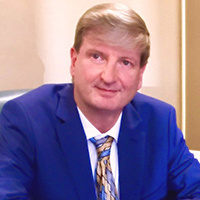 Custer RICO Act Lawyers, Wisconsin
Custer RICO Act Lawyers, Wisconsin
Sponsored Law Firm
-
 x
x

Click For More Info:
-
The Law Offices of Richard L. Cooper, P.A.
848 Brickell Avenue Suite 800 Miami, FL 33131» view mapDWI/DUI, Drug Trafficking, Felony Nationally Ranked Top 40 Under 40
With Richard L. Cooper you can expect a trusted confidant who will work diligently to fully understand your case and determine a road map to help you regain control of your life.
800-756-2781
Not enough matches for Custer RICO Act lawyer.
Below are all Custer Criminal lawyers.
Sponsored Lawyers
1-7 of 7 matches
Divorce & Family Law, Criminal, Traffic, Child Custody, Child Support
Attorney Peter Lloyd is an experienced lawyer practicing law in the Central Wisconsin area. He limits his practice to specific areas (family, criminal and traffic law). He will strive to settle your case in the most efficient and least expensive way possible. He believes in clients having control over their own destiny and supports that goal throughout the legal process, which includes custody, property division and financial support in family law cases. In criminal and traffic matters he will represent you in court and help you reach the best possible outcome and success. During his career in private practice, he has held additional positions which have expanded his legal experience. He was City Attorney for the City of Nekoosa for approximately ten years. During this time, he would prosecute traffic and municipal violations on behalf of the City of Nekoosa, as well as attend city council meetings and provided advice on various legal matters. In addition, at various times during his career in private practice, he has temporarily acted as prosecutor for the Portage County Child Support Agency, as well as representing Portage County in other civil actions. He obtained a 1986 Business Degree from Marquette University, Milwaukee, Wisconsin and a 1989 Law Degree from Marquette University Law School. During law school, he was an intern with the Milwaukee County District Attorney Office. In addition, he was an intern with a private law firm in Milwaukee during law school. In the summer of 1989 he began practicing Law in Central Wisconsin, primarily in Portage and Wood County, as well as Waupaca and Marathon County. During his legal career, he has been a partner at law firms in both Stevens Point and Wisconsin Rapids.
(more)



 Richard L. Cooper Miami, FL
Richard L. Cooper Miami, FL AboutMiami Attorney at Law
AboutMiami Attorney at Law ServicesCriminal Defense
ServicesCriminal Defense

